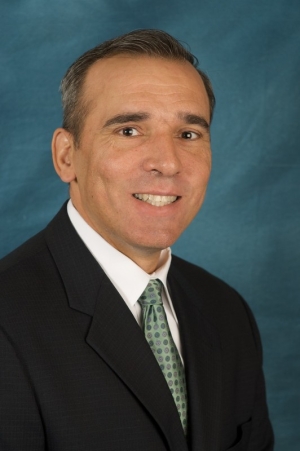HuffPo Op-Ed: It Takes a Community to Honor Service
December 10, 2014 / by Anthony Hassan- Opinion
As veterans return from war, how ready are we for them? Are we doing enough to help with that transition? What more can and should we be doing to streamline assistance to veterans and their families?
These were among questions explored last week at a gathering in our nation's capital of policymakers, researchers, military and community organizations. The Washington, D.C. event - kicked off by Congresswoman Lucille Roybal-Allard (D-CA) and closed by Sgt. Maj. Bryan Battaglia from the Office of the Chairman of the Joint Chiefs of Staff - was organized to explore comprehensive community-based approaches for helping veterans and their families. One such model highlighted was the Los Angeles Veterans Collaborative (LAVC).
A structured network of more than 400 Los Angeles County entities working across multiple sectors, the LAVC brings together diverse organizations and resources from both the private and public sector to provide coordinated support for military veterans and their families in the Los Angeles region. Member organizations are not just local, but also include state and federal agencies, such as the U.S. Departments of Veterans Affairs and Labor and California Veteran Affairs.
LAVC members meet monthly to discuss issues affecting local veterans, coordinate gaps in service, collaborate and take action on needed policy changes. It's organized by specific "working groups" that cover targeted areas of veteran services and needs, including behavioral health, housing and homelessness, higher education, career advancement, healthcare, families and children, faith, in addition to legal and re-entry matters.
Over the years, this issue-specific working group structure has helped LAVC members more effectively, efficiently and consistently address the needs of Los Angeles' military community. Its comprehensive community-based approach has been critical in helping reduce duplication of effort, break down the silos that often occur in the social service delivery process and connect more veterans to available help. The LAVC was also instrumental in driving the recent and unprecedented study of the veteran population in Los Angeles County.
The collaborative approach used by the LAVC has yielded many notable successes over the last several years.
Working with LA County 211's database, the LAVC was the catalyst behind the recent development of a dedicated resource portal that allows veterans to search for and access needed services by simply calling 211 or visiting the www.laveteransportal.com website.
Acting on data that shows military children are at twice the risk for mental health conditions, the LAVC also recently partnered with the Los Angeles Unified School District to help identify children of military families at time of enrollment, so that district officials can better support these students' unique needs and family situations.
In addition, the LAVC is currently partnering with CBS Outdoor to create a billboard campaign across Los Angeles County targeted at destigmatizing help-seeking behavior and encouraging service members or their families to get help if needed.
These are just a few of the more than a dozen initiatives being undertaken by the LAVC to collectively build and deliver effective solutions for our Los Angeles area veterans.
As a model approach, the LAVC is the "all in" initiative orchestrated by community leaders that plays to the strengths of the community -- small groups of stakeholders who have important resources and existing relationships that need to -- and should be -- collectively working well together. We like to think of the LAVC as the "quarterback" of local service coordination, managing a diverse team of community players to draw out innovative ideas and strategies, then collectively building on the best ones. And it's proven to be the collaborative team structure that works.
We know that communities that successfully support their military-impacted populations are those that engage their entire citizenry in the unique challenges facing veterans transitioning home. In Los Angeles, that's what we're doing. We're hopeful that other regions throughout the country will consider similar community-focused approaches, helping to ensure that veterans receive the care and services promised when they enlisted.
To reference the work of our faculty online, we ask that you directly quote their work where possible and attribute it to "FACULTY NAME, a professor in the USC Suzanne Dworak-Peck School of Social Work” (LINK: https://dworakpeck.usc.edu)
